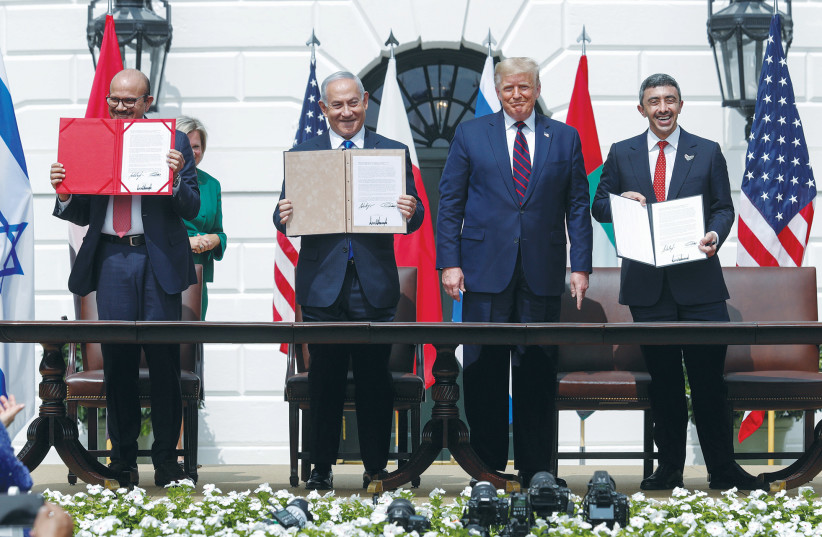MANAMA – Iran and Saudi Arabia may have renewed diplomatic relations on Friday, but at a first-of-its-kind bilateral Israeli-Bahrani economic conference here on Monday, officials from both countries hinted that the Saudis were still watching Israel’s relationship with the other Arab countries closely to gauge how to proceed with the Jewish state.
“Since the signing of the Abraham Accords, we knew that we were paving the way for a new era of peace in our region,” said Khaled Ebrahim Humaidan, chief executive of the Bahrain Economic Development Board. He said the goal was to expand the Abraham Accords and “work on other countries to join us, but we think that is only possible if the benefits are clear to everybody.”
Avi Hasson, the CEO of Start-Up Nation Central – which sponsored the three-day “Connect2Innovate” conference and brought some 60 Israeli businessmen, innovators and government officials to Manama to network with Bahrani counterparts – said Bahrain is interesting for Israelis “as an end destination, but also as a hub to other territories in the neighborhood, and also globally.”
Hasson said that these types of conferences serve as a stepping stone for potential collaboration. “In many aspects,” he said, “and this is true of the other Abraham Accords countries, the Saudis – including other countries – are looking closely at what is happening here, and what is happening on the bilateral level. And the more we can do, the better opportunity we have to expand.”
While Israel’s economic relations with the United Arab Emirates have taken off since the signing of the Abraham Accords in 2020 – reaching some $2.5 billion in trade last year – the pace with Bahrain has been slower, with trade only in the tens of millions of dollars.

Abraham Accords one of Washington’s ‘highest strategic priorities’ - US Ambassador to Bahrain
“The excitement of opening relations is fading, and the hard work of building a sustainable relationship for the long term is in front of us.”
US Ambassador to Bahrain Steven Bondy
Although some of this has to do with the UAE’s economy being just so much larger than Bahrain’s, much more can be done, Hasson said, explaining the impetus of the conference. “A lot of it has to do with building trust,” something that this conference hopes to facilitate.
US Ambassador to Bahrain Steven Bondy, who said that the accords were one of Washington’s “highest strategic priorities,” said the challenge now is to increase the pace of strengthening the ties.
“The excitement of opening relations is fading, and the hard work of building a sustainable relationship for the long term is in front of us,” he said. “We need to find practical ways to deliver tangible benefits to the citizens of both countries.”
Israel’s ambassador to Bahrain Eitan Na’eh put it a bit more colorfully: The two countries, he said, now need to move “from protocol to rock-n-roll.”
Bahrain’s envoy to Israel, Khalid Yusuf Ahmed Al Jalahma, told the 300 participants at the conference’s opening event at the spiral, futuristic-looking Wyndham Grand Hotel that he believes the “technological tools and products developed by Israeli start-up companies will bring benefit to the Bahrani economy and vice versa.”
None of the speakers, which also included Bahrain’s Minister of Industry and Commerce Abdulla bin Adel Fakhro, mentioned the judicial reform debate swirling in Israel and the impact it may have on the highly respected hi-tech ecosystem in Israel.
Hasson said that in his discussion with Bahraini counterparts, he has not heard anything about the issue. Asked if he is worried this could have an impact, he stressed that his organization is a non-political NGO that cares about the Israeli hi-tech ecosystem and is closely monitoring what is happening in the region. And while the organization has not seen any regional impact yet as a result of the situation, “obviously it is something that is not positive.”
